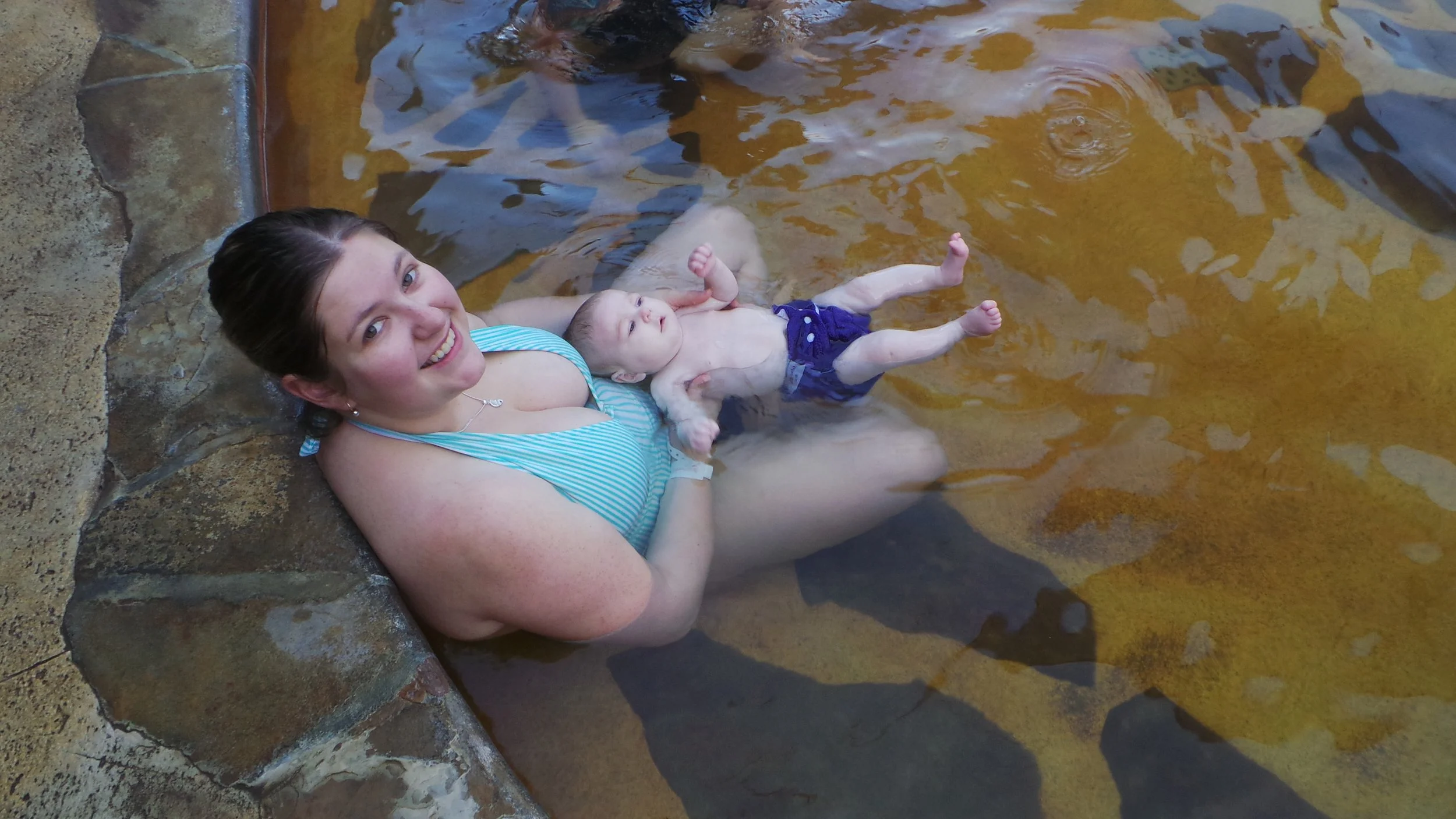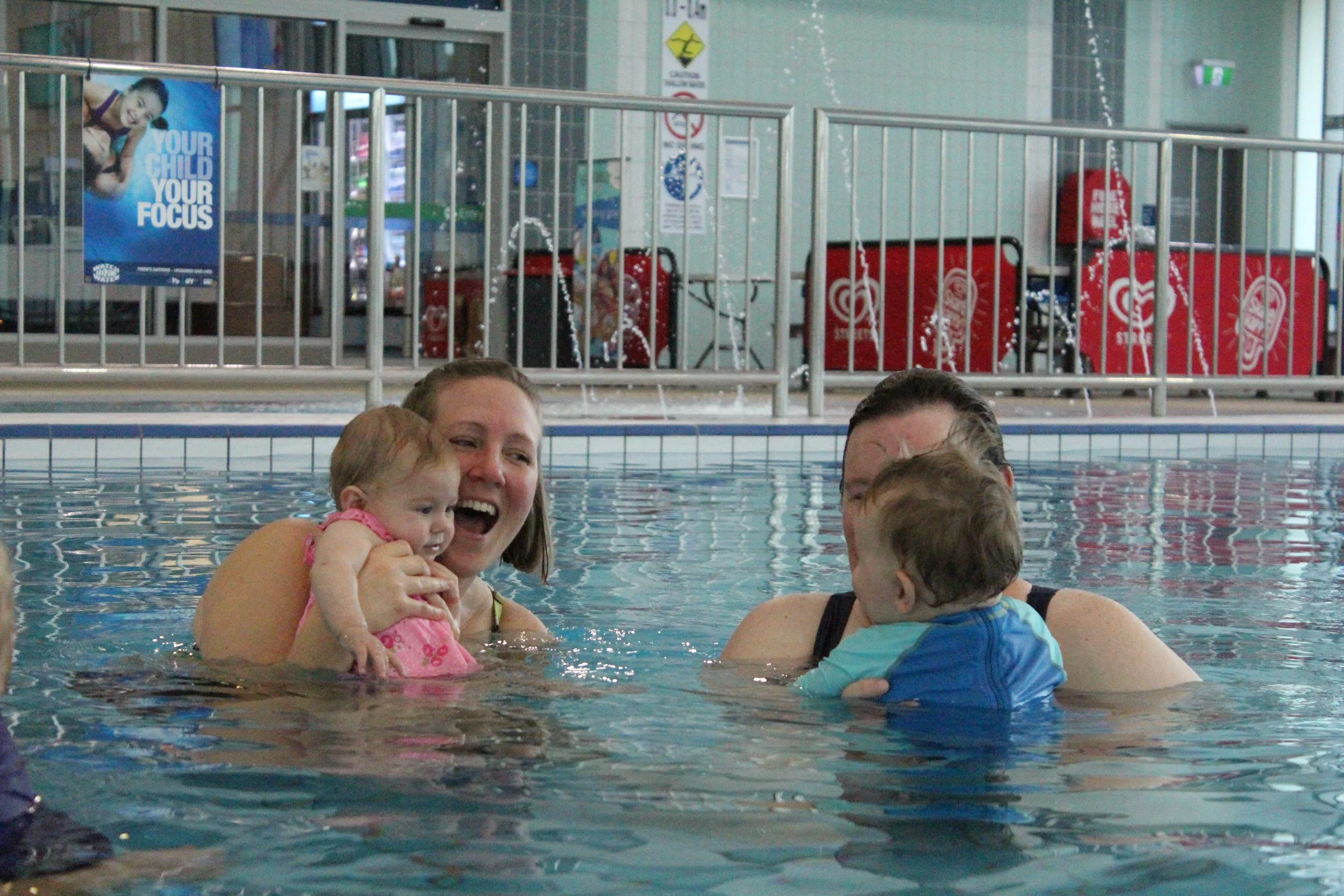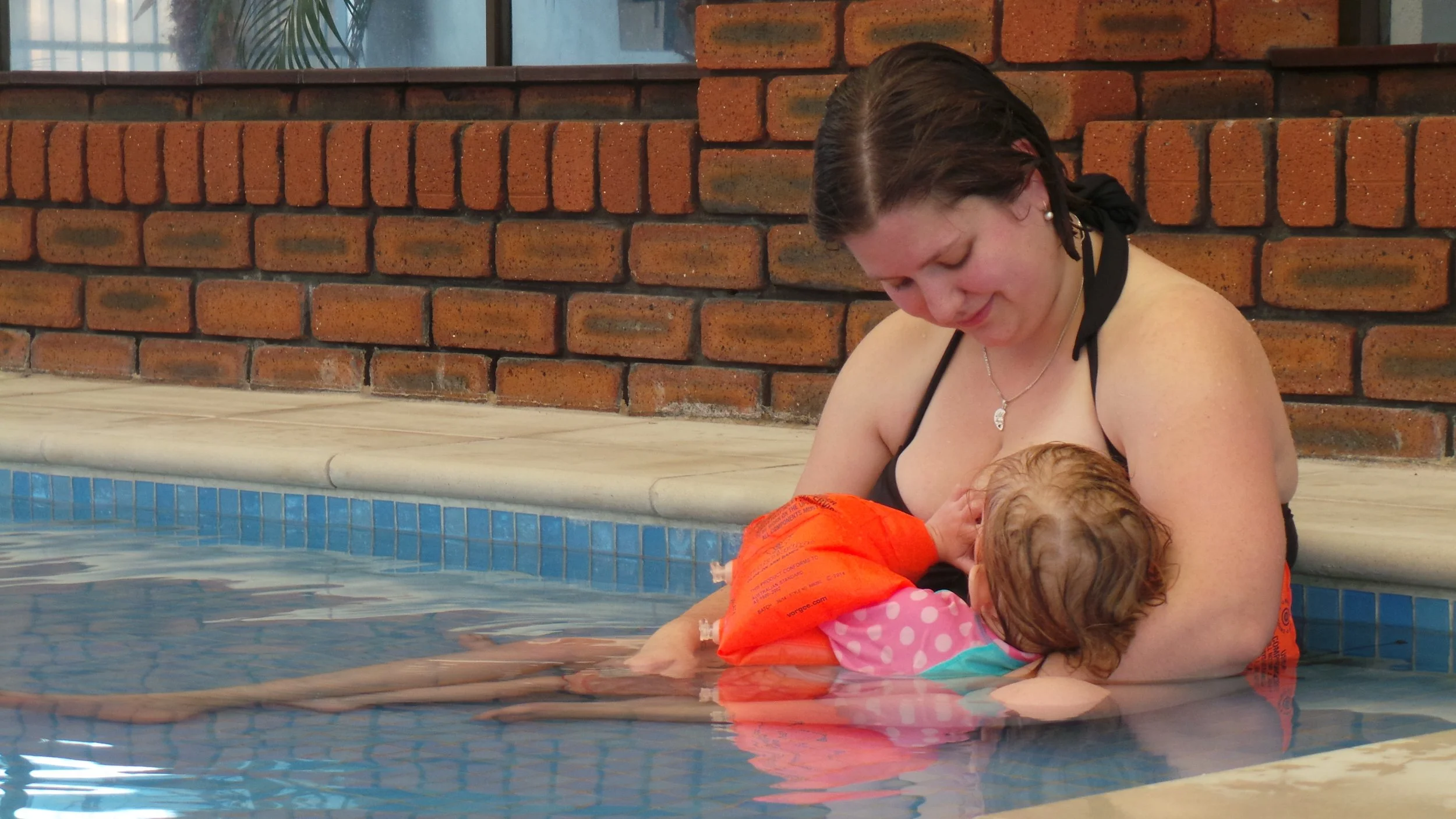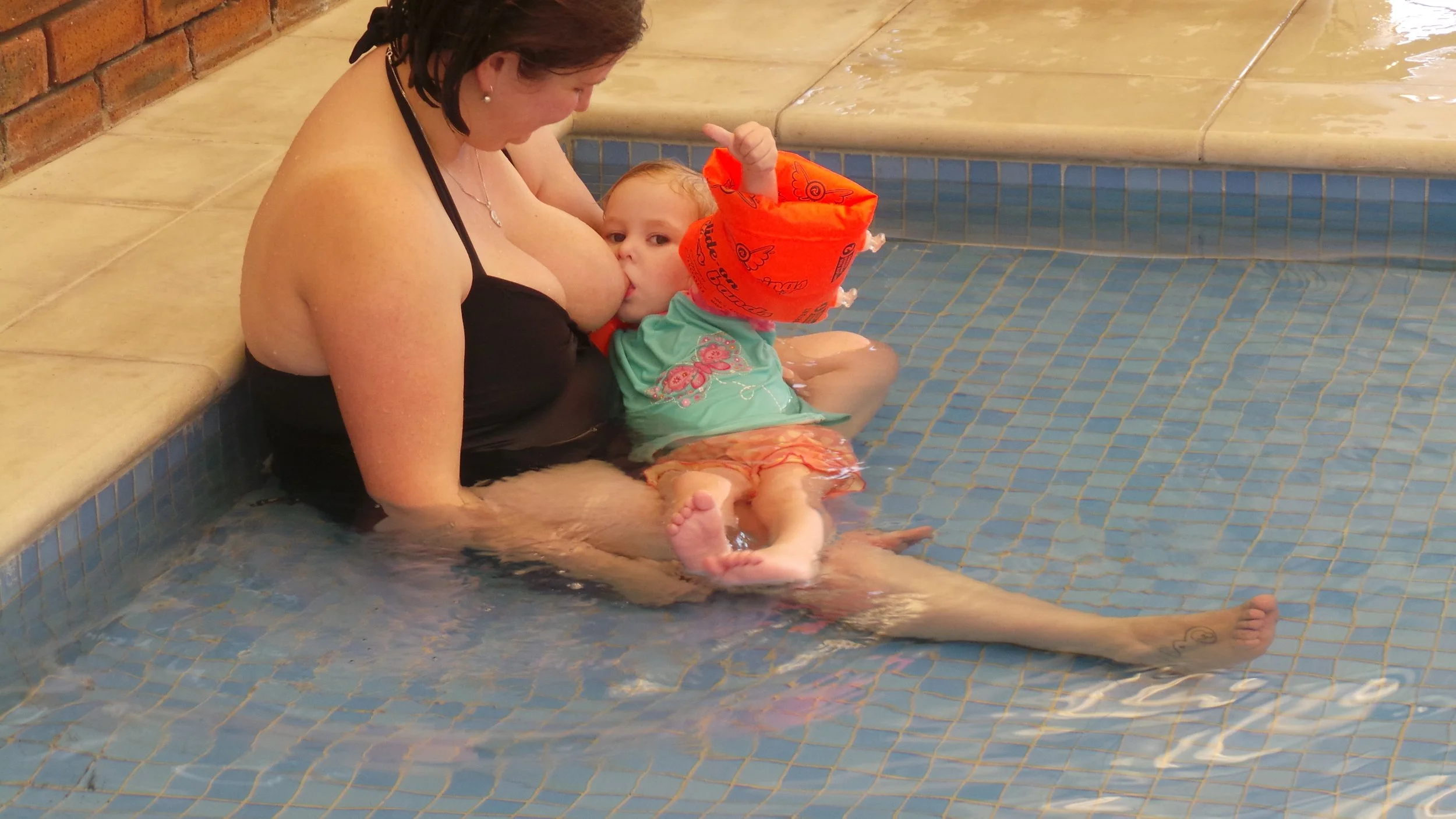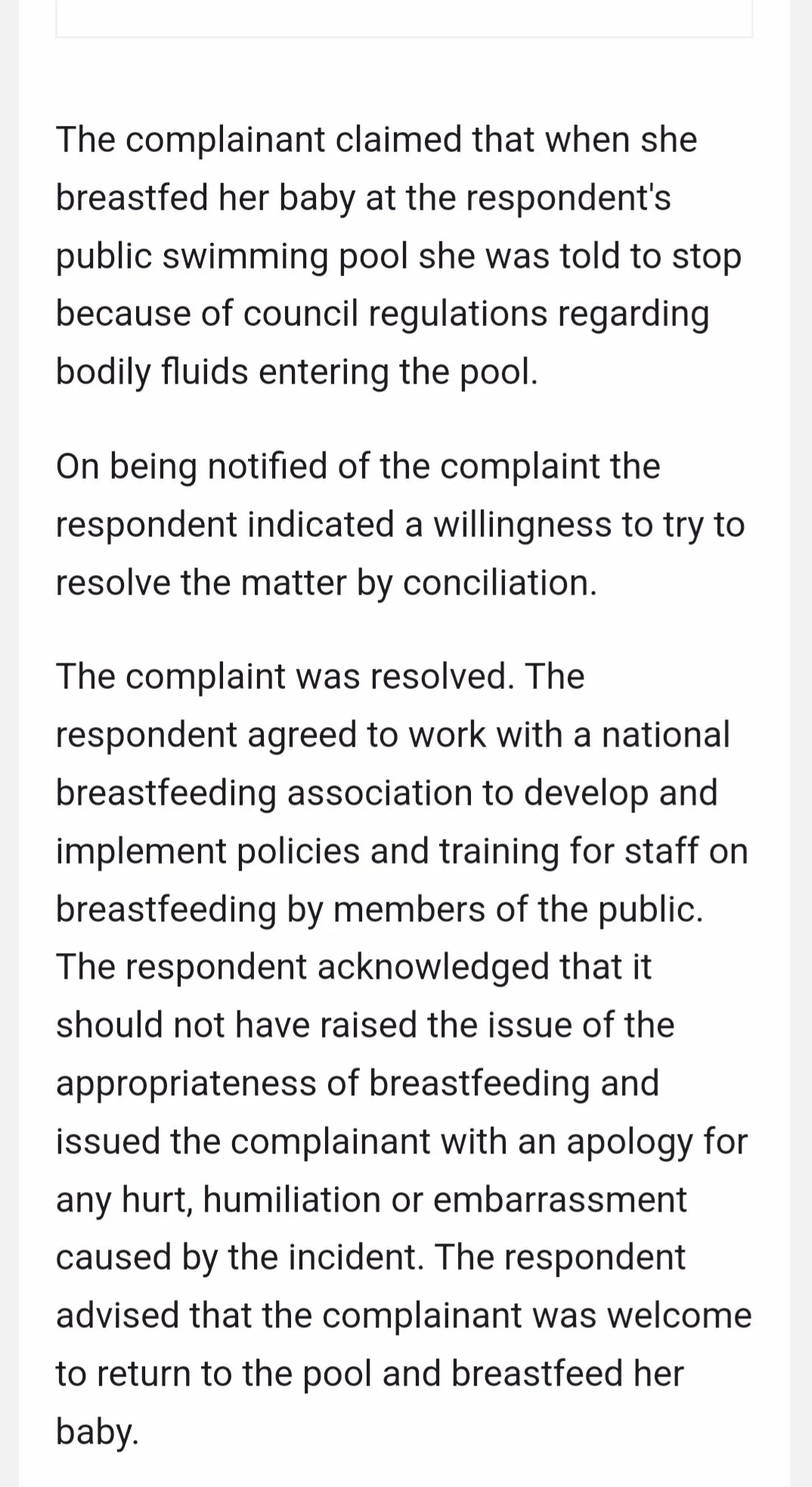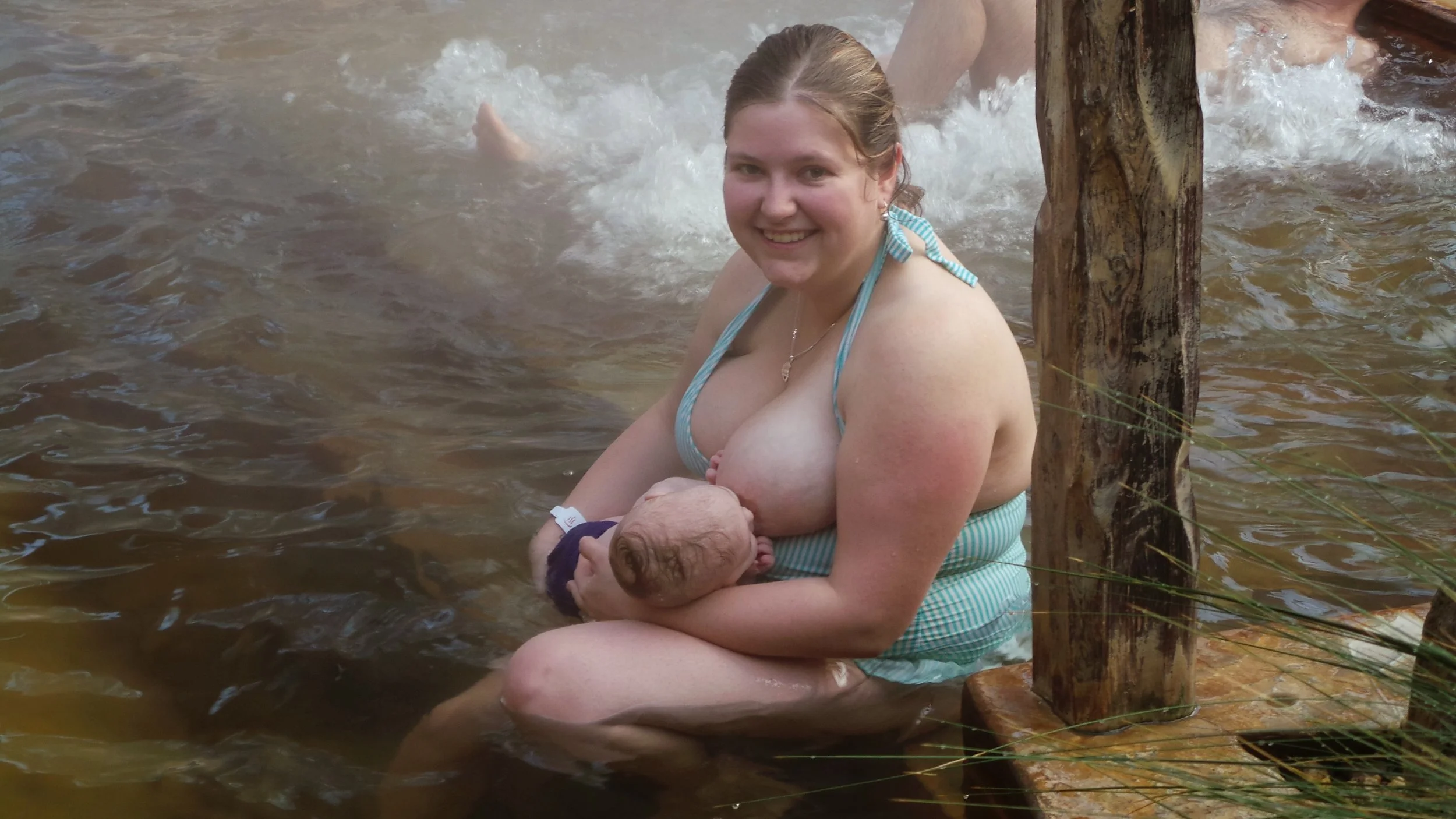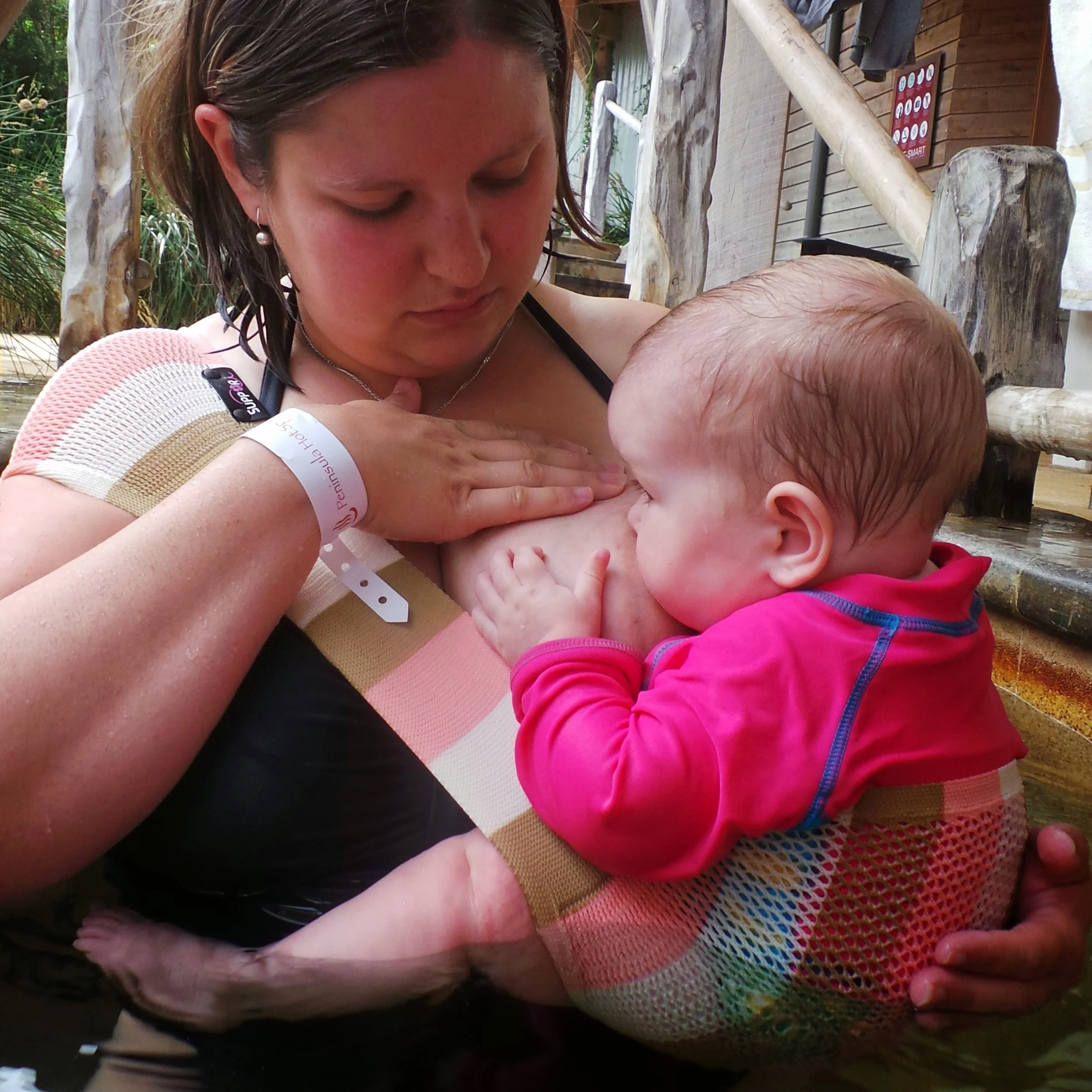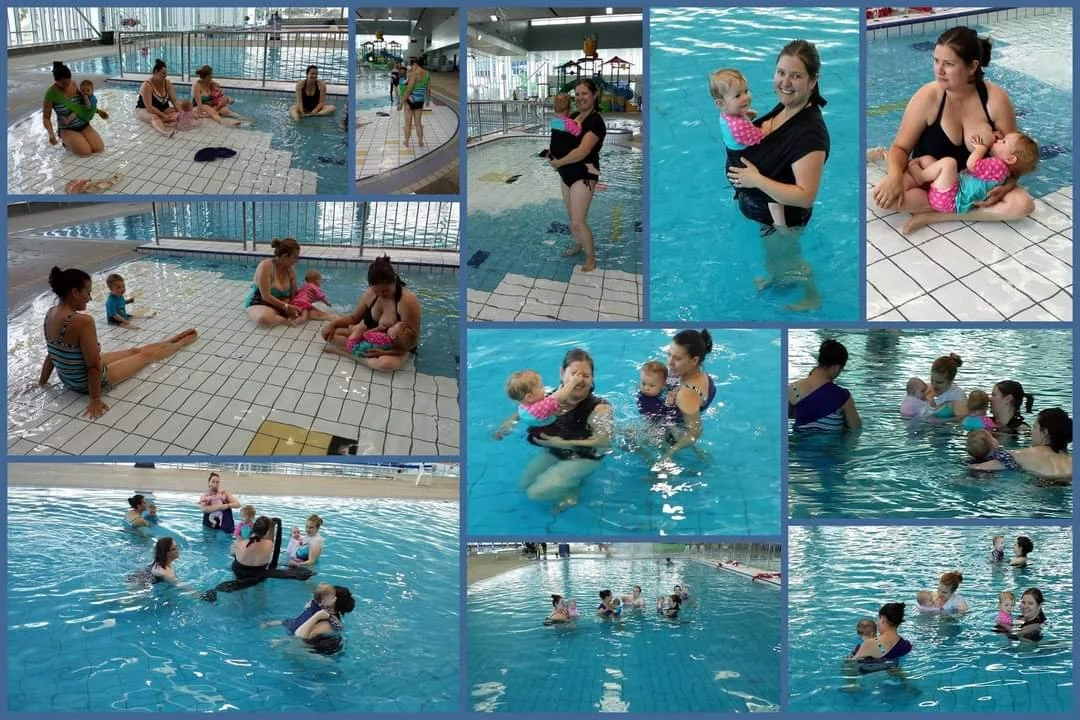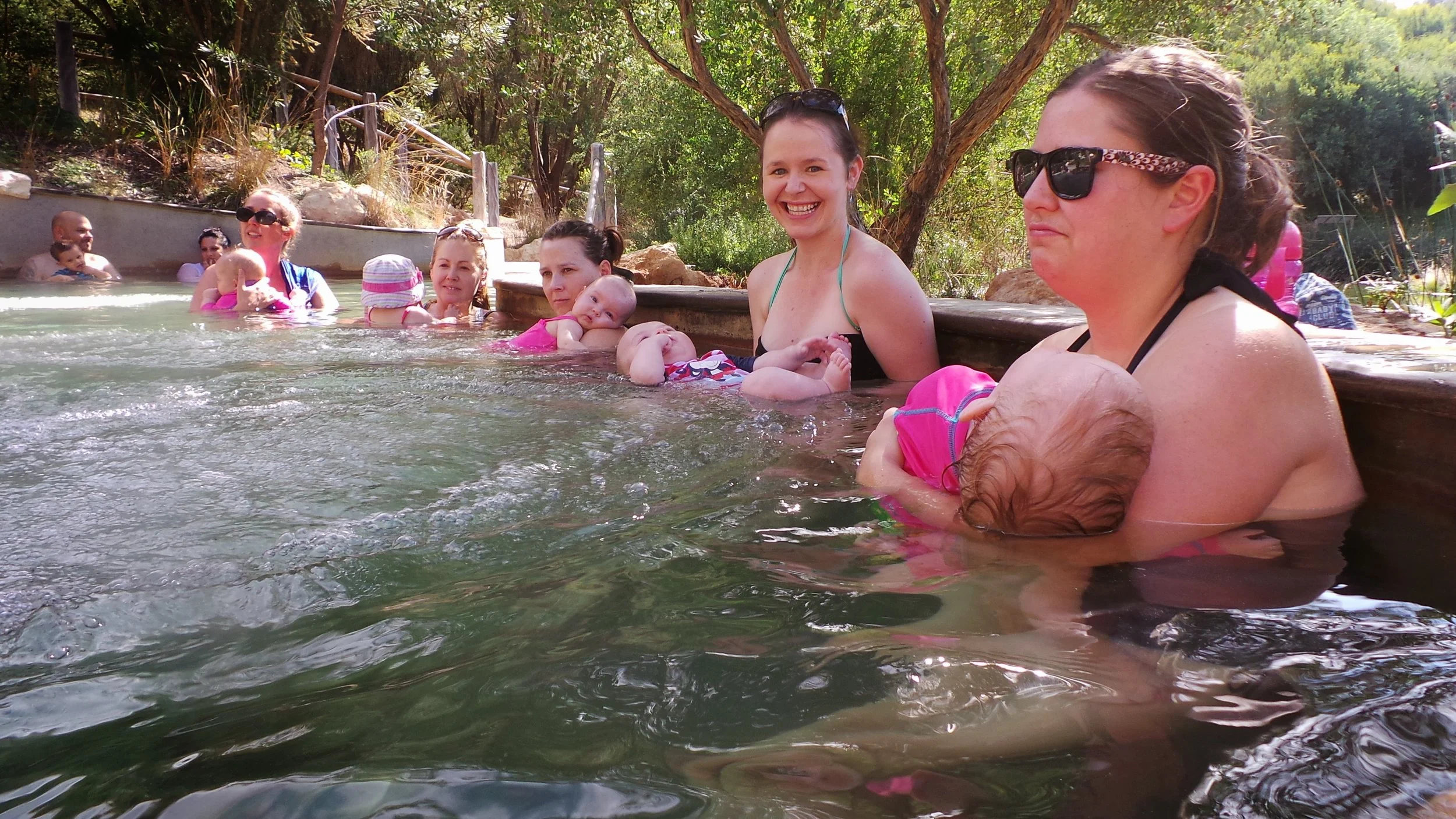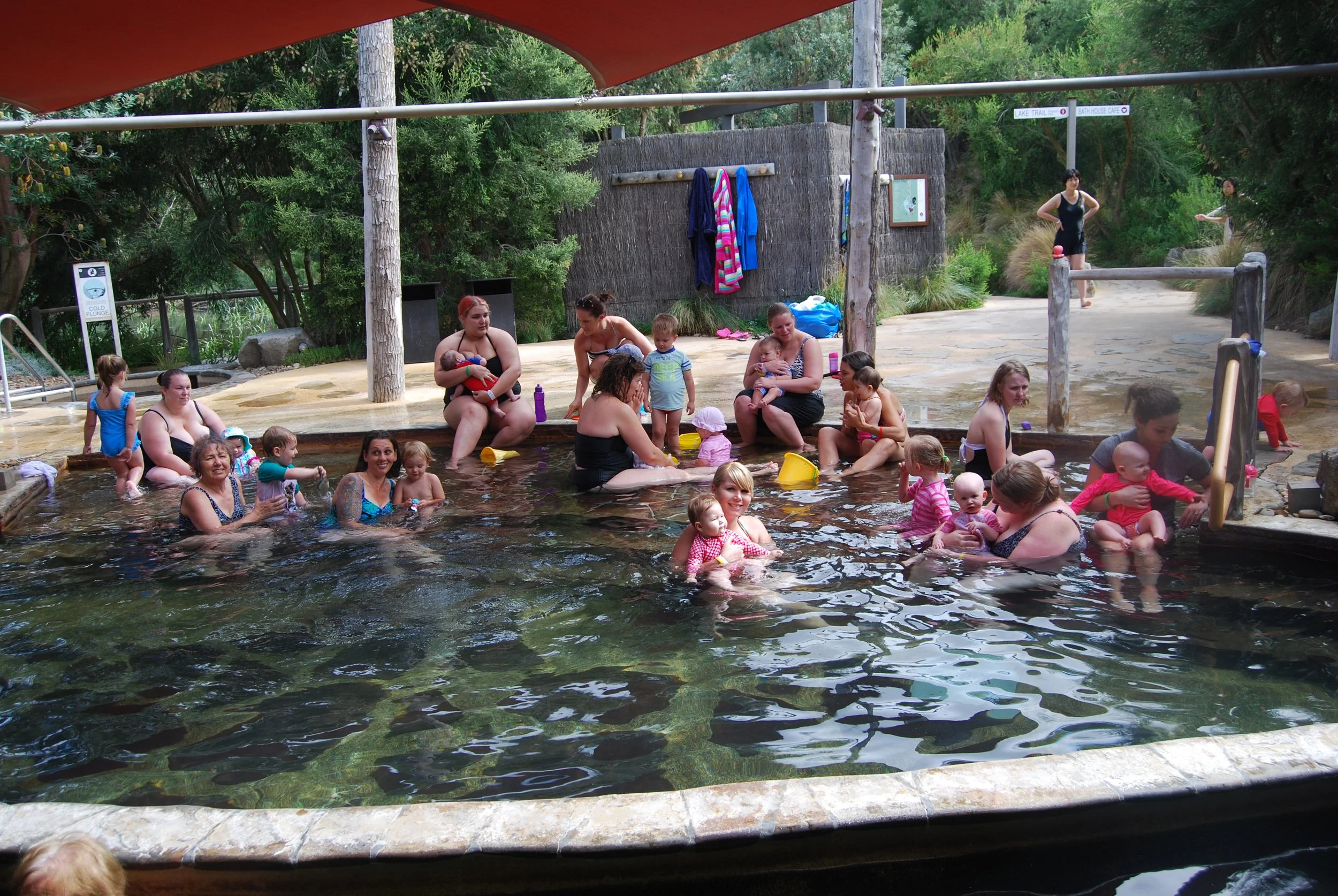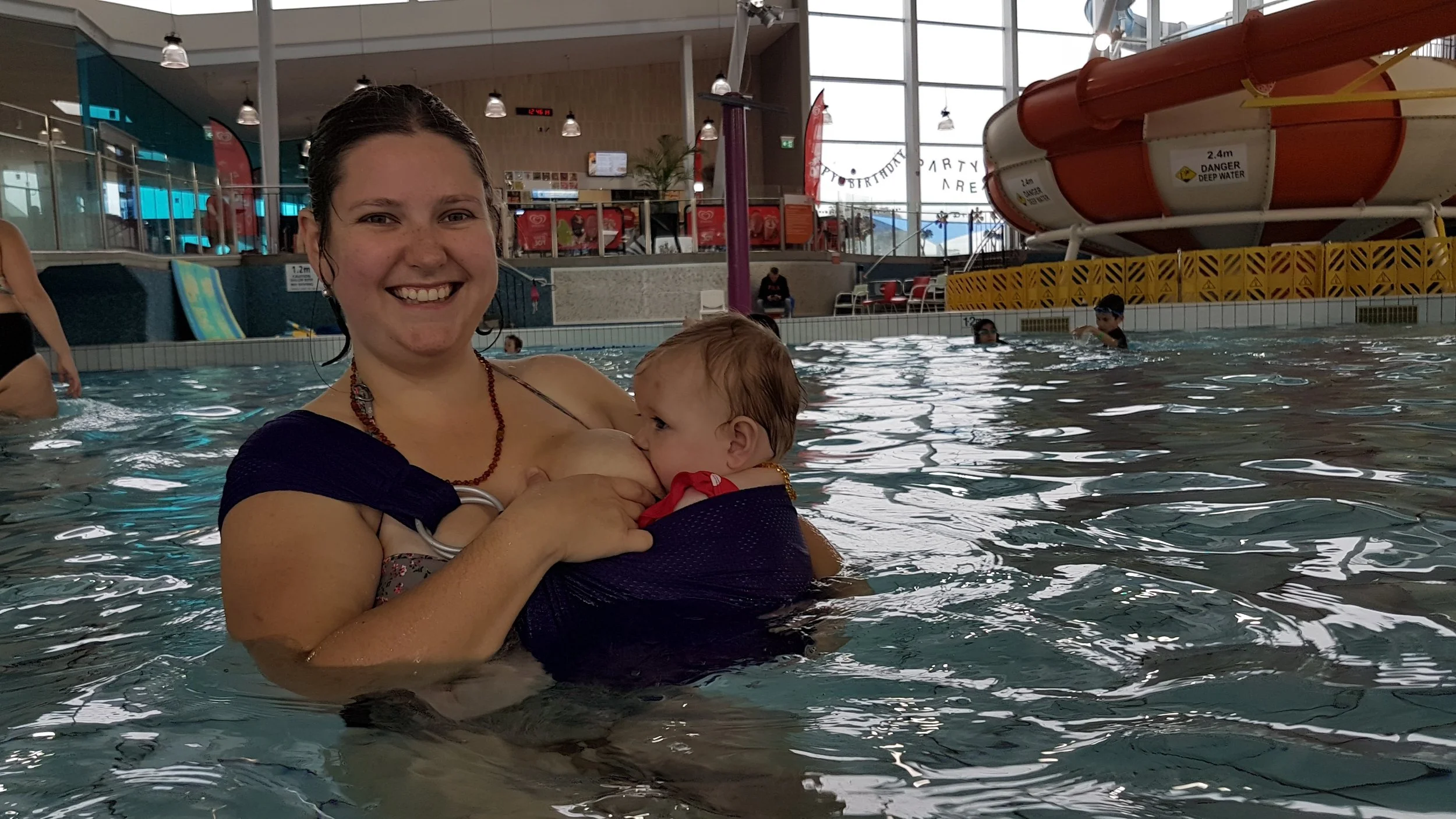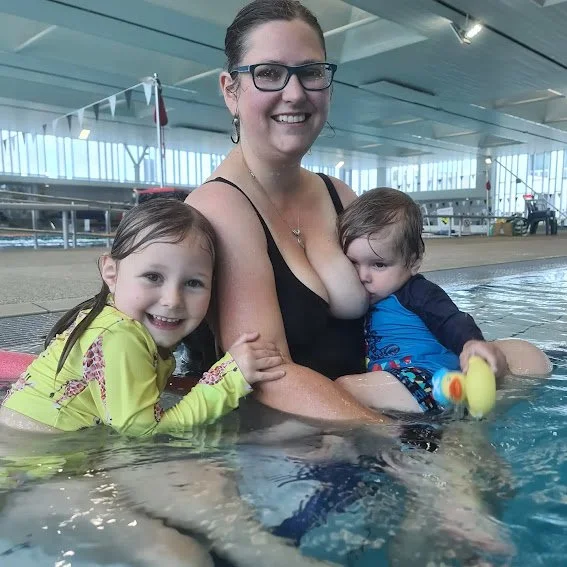Breastfeeding In Public Swimming Pools
Australian mothers are protected by anti-discrimination laws and it is prohibited to tell them to cease breastfeeding, move away to private spaces or cover up when breastfeeding in public places. Both State and Federal laws recognise the right to breastfeed anywhere a mother and child may legally be receiving goods and services.
However, some people are under the misunderstanding that these laws do not apply in the case of swimming pools. So lets sort the facts from the fiction.
Babies are permitted to use public pools
There are no age restrictions for entry into public pools. While some parents prefer to wait until a child begins their immunisation schedule, there are no rules requiring this. Most swim schools encourage participation in classes from four months of age. Incontinent people, including infants yet to be toilet trained, are generally required to wear some form of swim nappy or underwear.
Lactating women are permitted to use swimming pools
The production of human milk - colostrum - begins around 16 weeks gestation. After childbirth, this transitions to mature milk around 3-7 days postnatally and is continually produced until after weaning. Some women will continue to produce breastmilk for weeks, months or even years after a child ceases to breastfeed.
While some breasts leak milk between breastfeeds, mostly the fluid remains within the breast until the child latches and removes the milk during a feed. Milk might leak from the second breast while a baby feeds on the first. However, mothers can excrete milk independently of the baby and can leak throughout lactation and even while separated from their baby.
There are no restrictions on lactating women using swimming pools. There is no risk to their milk from chemicals or contaminants in the pool water. It is illegal to prohibit a breastfeeding woman from using a swimming pool or other public space because she is breastfeeding.
The recommended period of breastfeeding is at least two years for each child. Pregnancy plus lactation for each birth is therefore almost three years. The season of childbearing can include short or no periods when the breasts are not lactating between births. A mother of three might be in a state of lactation for the best part of a decade.
Breastmilk is not a biohazard
Not everything coming out of the human body is a risk of contamination. Human milk is not a health risk if minute amounts are excreted into pool water. Unlike faecal accidents, swimming pools do not need to be closed and treated if breastmilk enters the water. This includes the small volume a baby might bring up during or after a breastfeed.
Breastfeeding in a body of water doesn’t increase risks to infants
Adults are permitted to hold their child while standing and walking in swimming pools. They are allowed to sit in shallow water holding their babies and to sit on the side of pools holding their child. The act of breastfeeding does not increase the risk of babies drowning, slipping, falling or other accidents. The connection of baby to breast does not distract mothers or make them unable to support their baby.
Breastfeeding is not required to be discreet
It is illegal to require a breastfeeding mother to cover her breasts or baby before, during or after the act of breastfeeding. The opinions of other pool users is not relevant to the legal rights of the mother to attend to her babies needs. Strangers religious beliefs or values do not invalidate the law.
Breastfeeding cannot be “against the rules”
Businesses providing goods or services to the public reserve the right to have rules of conduct on their premises. However, law overrides any such rules which might be proven to breach the rights protected by anti-discrimination law. If a facility had a written policy or signage implying women were not permitted to use the public facility during the act of breastfeeding, the Human Rights Commission would have grounds to find them in breach of the law.
The Australian Breastfeeding Association state:
“In the past, ABA is aware that some mothers have been told to cease breastfeeding at public pools due to council regulations regarding bodily fluids entering the pool. A precedent regarding this was set in 2011 when a mother’s complaint was conciliated by the Human Rights Commission. In this case, the management of the public pool issued the mother an apology, undertook appropriate training for their staff and changed their policy and practice in this area.”
“No food or drink in the pool!
This is sometimes stated as a reason a mother cannot breastfeed in the swimming pool. However, the breast is the “container” of the breastfed baby’s food and drink. It isn’t going to be dropped, spill open or break apart!
So why do we hear reports of women being told they cannot breastfeed in pools?
In many cases, misinformed staff members make judgements which are not supported by management or policy. In the majority of cases, apologies are made to mothers who have experienced discrimination and staff undergo additional training.
Here are some examples from my own personal involvement with such incidents:
Our South Eastern Babywearing Group held a gathering at our local swimming pool. My daughter was participating with her own infant daughter. A pool deck attendant came over to our group and told my daughter she was not permitted to breastfeed in the water. I quickly advised him of her legal rights and his responsibilities. Management later contacted me with an apology for my daughter and an invitation to provide some staff training. They accepted my offer of Australian Breastfeeding Association stickers promoting their Breastfeeding Welcome Here program.
“We just wanted to let you know the duty manager who raised concerns was from New Zealand* and hadn't yet been briefed about breast feeding in pools in Australia. We apologise that a member of our team questioned you and next time you visit PARC, we would be happy to meet with you and use any literature you may have to assist training our team on this topic.”
Nine years later, my daughter confidently breastfeeds her third child at the same pool, where her children attend swimming lessons. The eldest is proud of “her” stickers at the entrance and key points throughout the centre.
* New Zealand has similar laws protecting breastfeeding, as it happens, so this staff member was not experiencing a different culture!
Southern Natural Parenting Network held a group day out at a local hot springs, which welcomes infants from 4 weeks of age in the water. However, one staff member was mistaken when it came to breastfeeding:
My email:
“You may be aware a large group of mothers with babies and toddlers visited yesterday. I organised this day out for Southern Natural Parenting Network. We had a wonderful day, marred only by an incident which breached the rights of several breastfeeding women.
A staff member approached the group, in the pool immediately outside the change rooms and said if they wanted to breastfeed, they must sit on the side of the pool. Although all knew their legal rights under anti-discrimination law, we chose not to spoil our day and around 6 mothers with their babies at the breast did as instructed. They were embarrassed and they and their babies were chilled by being out of the water for the remainder of the feed. I am familiar with the anti-discrimination act in relation to breastfeeding and have no doubt that this is a breach. My daughter and I have visited on many occasions previously when she breastfed her daughter without comment, as she and many others did in all the lower pools yesterday, without comment from staff.
I presume this was a misinformed staff member who believes there is a safety issue and that Management know their obligations under the Law, so I wanted to contact you to offer any resources I can to train staff and and supply your facility with enough Breastfeeding Welcome Here stickers to ensure all staff and guests understand. “
The response:
“We do welcome families to visit Peninsula Hot Springs, and we are aware of the rights of breastfeeding mothers as you have experienced on previous visits with your daughter. As you have mentioned most of our staff tried to ensure that your group enjoyed your visit, as they do with all guests that enter the facility. Unfortunately one of our brand new pool attendants spoke with your group as she was concerned about the temperature of the water for the baby while breastfeeding, as she was under the impression that babies are unable to regulate their body temperature while breastfeeding. Her manager has spoken with her today to ensure she is aware of the policies. The manager will be readdressing her entire team to ensure that all of the team members are aware of the policies, no guests is made to feel uncomfortable during their visit.
Thank you for providing us with detailed information about the laws, our management team are aware of these regulations, however I have passed on to the relevant managers again today for you. We apologise that you had a negative interaction with one of our team members during your otherwise enjoyable afternoon. We hope that you can understand that this was one brand new team member that has been misinformed, and we will ensure that we follow this up with the entire team.”
I am known as an advocate for the rights of mothers and babies to go about their day without interference! Within a few months, I was contacted by two members of our community who had been inappropriately asked to stop breastfeeding in local swimming pools. On both occasions, they received apologies and I was invited to speak to staff to clarify the law and how they could support breastfeeding mothers and infants.
Most pool deck staff and life guards I spoke to were young and not familiar with how breastfeeding works and how it is very different to bottle feeding. They were surprised how often babies breastfeed and that there is no schedule for feeding. They were very interested to learn that breastfeeding can continue for several years! I also explained that very young infants cannot regulate their own body temperature, so removing them from the warmth of the pool to sit on the side of the pool or nearby seating can lead to rapid cooling. A mother would need to dry and dress herself and her child (and any older children) before finally sitting down to feed her newborn, which would result in distress and a lot of very loud crying! Staff members felt better informed and confident they didn’t need to do anything more than smile if they saw a breastfeeding mother meeting her baby’s needs while they were on duty.
I continue to be tagged regularly in discussions on social media when women have reached out for support after experiencing discrimination. Here is what I recommend if you find yourself in such circumstances:
Determine what outcome you want at this stage. An apology? An opportunity to educate and inform? Or more?
Legally, you can breastfeed anywhere you and your baby are allowed to be. You cannot be denied the provision of goods or services on the basis of breastfeeding. You, your breasts and your baby are allowed in the pool. So you can take them to the Human Rights Commission with a case of discrimination. It usually gets their attention when I mention that!
A formal letter to the manager, with details of who/what/when etc, the relevant law and where they can find resources and a request for contact by X date. Explain you are considering legal action, but do so politely.
If you get no response, find out who they answer to and write to them, including the letter you sent to the pool manager. Proper letters in the post are logged and must be actioned. This paper trail and any responses will guide you from there.
Ask to see their policy in writing - they won't have one. Ask the authority of the staff member involved and ask to see the staff guidelines on this - they won't have any. If they try the eating and drinking rule thing, explain your breasts contain milk all the time and you are no more likely to leak milk during a feed than between feeds. Ask for the evidence of the claim - they won't have any!

